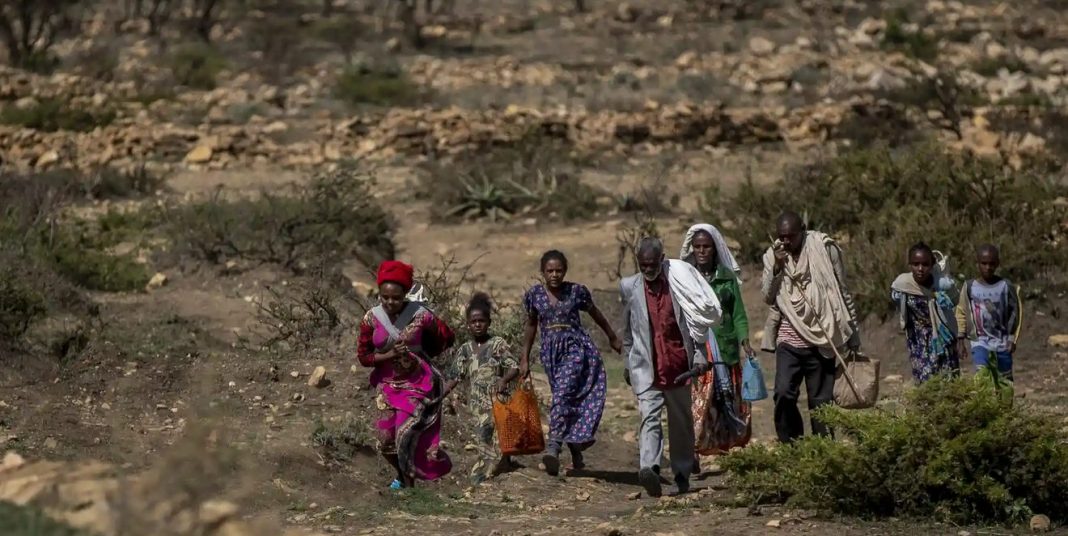A brutal war in East Africa is estimated to have claimed more than 600,000 lives. This Christmas, families like mine don’t even know if our loved ones are alive
A war is raging that has cost more than an estimated 600,000 lives. Its victims have borne witness to shocking human rights abuses and, tragically, civilians have been deliberately targeted. Tens of thousands of women have been raped. It has lasted two years and is happening today, yet the chances are you don’t even know where it is. Though it is far deadlier than the war in Ukraine, the western media have mostly ignored it.
On 4 November 2020, when Ethiopia’s prime minister, Abiy Ahmed, a Nobel Peace prize winner, announced a military offensive in the disputed territory of Tigray, it was difficult to imagine how catastrophic it would become. A population of more than 6 million people, under a government blockade, has been pushed towards mass starvation – with young children dying of acute malnutrition. Tigray has become a centre of weaponised rape and an internet blackout that has added to the psychological torture faced by victims, and by families such as mine desperate to hear from our loved ones.
Before the war, Tigray was home to 47 hospitals, 224 health centres and 269 functional ambulances; today more than 80% of the hospitals have been damaged or destroyed at the hands of Ethiopian and Eritrean soldiers, and ambulance services are no more. The statistics and the scale of human suffering mean the eyes of the world should be on Tigray, yet two years later it feels as though no one is watching. What is particularly tragic is that the lack of attention is not because the international community and media lack resources. This year we have seen what is possible when the world decides a conflict and the lives destroyed by it are worth caring about.
My family are from Tigray, and we have had limited communication with our relatives since the war began. The last I heard from my aunt was a short voice note in March saying they had run out of money and medication, and things were dire. We haven’t heard from her since. With limited communication in some regions, some Tigrayans living abroad have only learned of the loss of their loved ones after more than a year. Many Tigrayans in the diaspora are now resigned to the fact that when communication lines are fully restored, they will probably learn of more loss and suffering.
On 2 November this year there were muted celebrations as a peace deal was signed by the warring parties. Some hoped this could be the first step towards justice and a lasting peace. Yet weeks later came reports of Eritrean troops looting towns, and displacing, arresting and killing civilians in Tigray. It remains uncertain how the perpetrators of civilian abuses will be effectively investigated and brought to justice – especially as the abuses are continuing.
For the west, this war, which has taken place for the most part in the dark, raises important questions about how the media report on conflicts and humanitarian crises. It reminds us of the dark reality that not all conflicts, not all humanitarian crises are equal, no matter how horrific the human cost.
It’s a tragedy that Tigray has become a forgotten catastrophe. As I write this, much of Tigray is still inaccessible or uncontactable, civilians are unable to access their money, they are starving, the health crisis is immense and they are still being terrorised by militia and soldiers.
The question remains, how did the international community ignore hundreds of thousands of people dying? And what does it mean that such abuses of justice are allowed to occur? When all is said and done, our global consciences must reckon with the fact that, while this human bloodbath happened, we chose not to watch.
- Magdalene Abraha is a writer and publisher at Jacaranda Books
- This article was amended on 28 December 2022. The number estimated to have died in the war is at least 600,000 people. An earlier version said it was up to 600,000 lives
The Guardian































